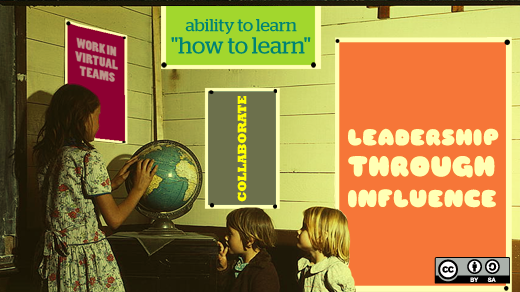The "business analyst" is a relatively new concept. In fact, as a recognized job title, it's existed for less than six years. Ideas about exactly what a business analyst is and should do as part of their organizations are emerging rapidly.
In general, however, people tend to agree that the business analyst—or the "BA," as some call us—holds the keys to communication between the business and the broader software development industry. As that industry changes—and starts moving faster—it's essential for a business analyst to collaborate effectively with sponsors, project managers, stakeholders, and developers. And on top of that, the introduction of DevOps into more and more working environments means software integration will also move more quickly—and require new management of the multiple teams associated with it. This emergence is especially challenging for business analysts as they rethink their roles and adapt their skill sets.
The key to being a successful BA (no matter your industry, area of expertise, or project methodology) is to be open.
The open business analyst
In The Open Organization, Jim Whitehurst defines an open organization as one that "inspires, motivates, and empowers people at all levels to act with accountability." As effectors of change in an organization, business analysts must inspire, motivate and empower stakeholders and developers.
More specifically, there are three steps to mastering openness as a business analyst: look, listen, and learn.
Look for opportunities to (as Jim puts it) inspire, motivate, and empower the stakeholders. Begin all requirement gathering sessions with ground rules that empower the stakeholders to speak without fear. Remind the stakeholders that they are needed because they are the experts. They hold the knowledge the project needs. Be aware of their participation and acknowledge the importance of it. This will motivate not only individual stakeholders to participate, but others as well. This works well, too, when explaining requirements to developers. Look for signs that they may not understand the requirements, and encourage them to speak up and discuss concerns and questions.
Listen—don't just hear. In the article, Listening: Our Most Used Communications Skill, Dick Lee and Delmar Hatesohl discuss the importance of listening. "A typical study," they write, "points out that many of us spend 70 to 80 percent of our waking hours in some form of communication. Of that time, we spend about 9 percent writing, 16 percent reading, 30 percent speaking, and 45 percent listening." In other words, nearly half of communication is listening, and for business analysts, that percentage could easily be much higher. We listen to project sponsors to determine the scope of the project. We listen to stakeholders as they explain what they need and want. And we listen to developers to ensure that they understand the requirements. There are many tips about how to be a better listener. The mistakes that are most common are interrupting the person speaking and planning your next statement without comprehending what the speaker has said. Be present in the moment with the sponsors, stakeholders and developers. Listening encourages more open participation.
Finally, learn, learn, learn! Learn something every day. Stay abreast of the new topics, ideas and techniques. Meet with other business analysts in your organization and in your area to to share ideas. Read The Open Organization Workbook to learn (from more than 25 managers, leaders, and consultants) tips for building organizations that are more transparent, inclusive, adaptable, collaborative, and communal. This workbook will help you earn about how recognize who you are as a leader and how to successfully effect change in your organization in an open way.
Business analysts are an integral part of the success of a project, but they cannot work alone. Becoming an open business analyst encourages sponsors, stakeholders, and developers to share their expertise, to collaborate, and to take accountability. Hold yourself accountable to be the best business analyst that you can be. Empower and motivate yourself each day and remember to look, listen, and learn.






2 Comments